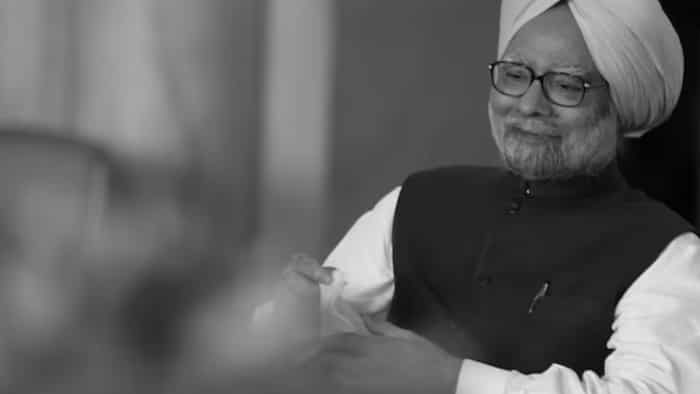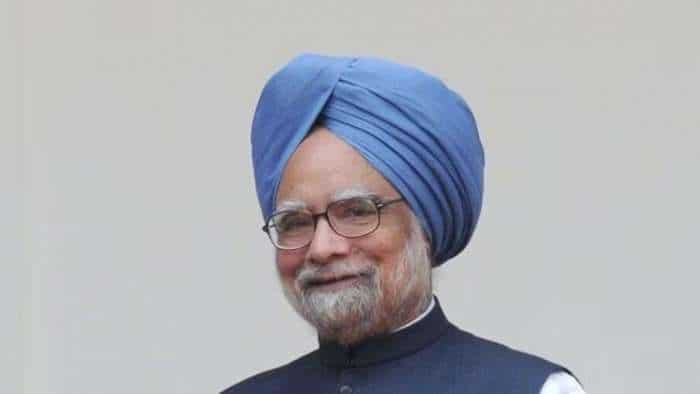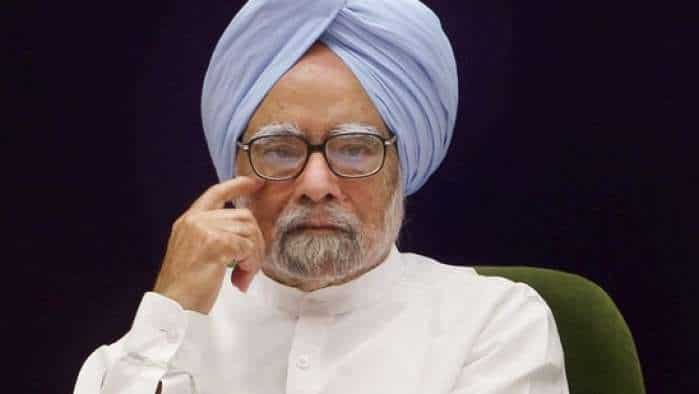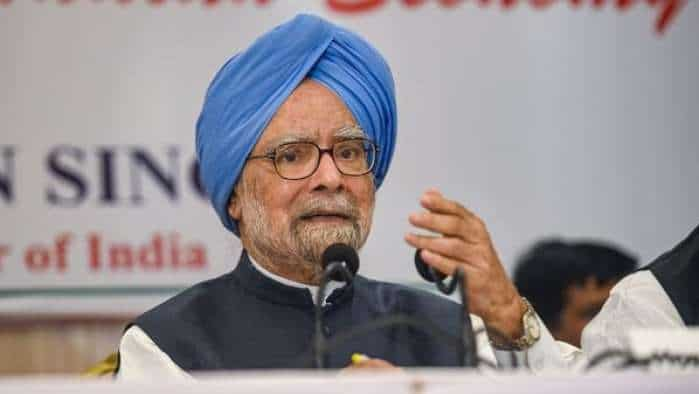Must Read: Article on demonetisation by Finance Minister Arun Jaitley

Sunday morning, Finance Minister, Arun Jaitley penned his thoughts on the demonetisation move by the Modi-led government.
“Two months have passed since the Prime Minister announced the decision that high denominational currency notes would cease to be a legal tender. Subsequently those notes have been demonetised. When 86% of a country’s currency constituting 12.2% of its GDP, is squeezed out of the market and sought to be replaced by a new currency, there would obviously be significant consequences of that decision. Now that the queues outside the banks have disappeared and the remonetisation has moved ahead, it would be worthwhile to analyse the rationale behind the decision and its impact," Jaitley said.
Following is the full Text of the Article entitled “Demonetisation – A Look Back at the last Two Months” by the Union Finance Minister Shri Arun Jaitley:
1. Steps against Black Money
The Narendra Modi Government had absolute clarity from day one that it would move against the shadow economy and black money. It’s first decision was to constitute SIT under the directions of the Supreme Court. The Prime Minister had proposed to the G-20 at Brisbane that international cooperation in sharing information with regard to base erosion and profit shifting should be expedited. The arrangement with the United States furthered this object. The NDA Government completed its agreement with Switzerland that w.e.f. 2019, details of assets held by Indian citizens in Switzerland and vice versa would be provided to each other. Since 1996, the Double Taxation Avoidance Treaty with Mauritius was being renegotiated. The treaty effectively incentivised round-tripping. It was renegotiated. Similar treaties with Cyprus and Singapore have also been renegotiated. The Black Money Law dealing with illegal assets outside India opened a window for disclosure with 60% tax and provides a ten year imprisonment.
The Income Declaration Scheme (IDS) 2016 was highly successful with a 45% tax. The PAN card requirement for cash transaction beyond rupees two lakhs put hurdles on expenditure through black money. The Benami law legislated in 1988 and never implemented. It was amended and has been put into action. The GST, which is scheduled to be implemented this year, will provide for better indirect tax administration and being a more efficient law will check tax evasion. The demonetisation of high denominational currency notes was the big step in the same direction.
2. The new normal
In the year 2015-16, 3.7 crore assesses of the total population of over 125 crores, filed income tax returns. Out of these, 99 lakhs declared income below Rs.2.5 lakhs and paid no taxes; 1.95 crores declared income less than Rs.5 lakhs; 52 lakhs declared income between Rs.5 to10 lakhs, and only 24 lakhs declared income above Rs.10 lakhs. No better evidence is required to substantiate that both in the matter of direct and indirect taxes India continues to suffer being a hugely tax non-compliant society.
Expenditure required for poverty eradication, national security and economic development have to be compromised with on account of tax non-compliances. For seven decades the Indian “normal” has been to undertake transactions partly in cash and partly in cheque. “Pucca” and “Kachha” accounts are a part of the business language. Tax evasion has been considered as neither unethical nor immoral. It was just a way of life. Several Governments have allowed this “normal” to continue even though this compromised with larger public interest. The Prime Minister’s decision is intended to create a new “normal”. It seeks to change the expenditure pattern of India and Indians. It is obviously disruptive. All reforms are disruptive. They change the retrograde status quo. The demonetisation puts a premium on honesty and penalises dishonest conduct.
3. The adverse consequences of Cash
Paper currency is a zero interest anonymous bearer bond. It has no name or history attached to it. Crime can take place with or without cash but excessive cash as a medium of exchange is favoured by the underground economy. It results in non-compliance in the matters of tax payments which creates an unjust enrichment in favour of the evader as against the poor and the deprived. Mountains of cash money reach tax havens through the hawala route from the original paper currency. Cash facilitates real time untraceable payments. Cash is the medium which funds bribery, corruption, counterfeit currency and terrorism. Ethical and developed societies aided by technology have consistently moved towards banking and digital transactions as against the excessive use of cash. Paper currency opens the doors for many vices. When Governments are able to collect more tax from tax evaders, they are in a better position to collect less tax from everyone else. Reducing cash may not eliminate crime and terrorism but it can inflict serious blow on them. States have shown that the stores of cash do not disappear on their own till Governments take active steps to reduce the quantum of paper currency.
4. The magnitude of the decision
The Prime Minister’s decision to replace the high denominational currency and eventually demonetise it required both courage and stamina. The implementation of the decision carried pain. It can lead to short term criticism and inconveniences. Drop in economic activity on account of the currency squeeze during the remonetisation period would have a transient impact on the economy. The decision involves high level of secrecy and printing substantial amounts of paper currency, distribution through banks, post offices, banking mitras and ATMs.
The fact that large quantum of high denominational currency has been deposited with the banks does not render this money to be legitimate cash. Black money does not change its colour merely because it is deposited in bank. On the contrary, it loses its anonymity and can now be identified with its owner. The Revenue Department would thus be entitled to tax this money. In any case, the amendment to the Income Tax Act itself provides that the said money, if voluntarily declared or if involuntarily detected, would be liable for differential and high rates of taxation and penalty.
5. The situation today
The period of pain and inconveniences is getting over. Economic activity is being restored. The banks today admittedly have a lot more money available in order to lend for growth. Since this money constitutes low cost deposits with the banks, it is bound to bring down the rate of interest. Both these things have already happened. Lakhs of crores, which were floating in the market as lose currency, have now entered the banking system. Not only has the money lost is anonymity, it’s owners, after being taxed, are entitled to put it to more effective uses. The size of the banking transactions and consequently the size of the economy is bound to increase. In the medium and long run, the GDP would be bigger and cleaner. Money entering into the banking system and officially transacted would give an ample scope for higher taxation – both direct and indirect. The Centre and the State Governments would both stand to gain. The economy would also be serviced by both cash and highly digitized transactions.
6. The Opposition
There was no social unrest while implementing such a major decision. All opinion polls conducted by independent media organizations have shown that an overwhelmingly large percentage of people have supported the Government’s decision. The opposition disrupted a full Session of Parliament. Their protests have been ineffective. Their exaggerated claims on the disruption of the economy have proved wrong. It is a tragedy that a national party like the Congress decided to adopt a political position, opposing both technology, change and reforms. It sided with black money friendly status quo.
7. The marked difference
There was a marked difference in the approach of the Prime Minister and his opponents. The Prime Minister was being futuristic, and thinking of a more modern, technology driven cleaner economy. He is now speaking of cleaning the political funding systems. His opponents want a cash dominated, cash generating and cash exchange system to continue. The difference between Prime Minister Narendra Modi and Rahul Gandhi was clear - the Prime Minister was thinking of the next generation while Rahul Gandhi was only looking at how to disrupt the next Session of Parliament.”
Get Latest Business News, Stock Market Updates and Videos; Check your tax outgo through Income Tax Calculator and save money through our Personal Finance coverage. Check Business Breaking News Live on Zee Business Twitter and Facebook. Subscribe on YouTube.
RECOMMENDED STORIES
12:13 PM IST











 Rs 7,755 crore worth of withdrawn Rs 2,000 banknotes still in circulation
Rs 7,755 crore worth of withdrawn Rs 2,000 banknotes still in circulation 2,000-rupee note: A barrage of memes on social media as RBI presses 'exit' on 2,000 currency bill
2,000-rupee note: A barrage of memes on social media as RBI presses 'exit' on 2,000 currency bill Bye bye, Rs 2,000 banknote! 10 things to know about the bill that has been in circulation for 6 years
Bye bye, Rs 2,000 banknote! 10 things to know about the bill that has been in circulation for 6 years Finance Minister Nirmala Sitharaman says govt hasn't stopped banks from filling Rs 2000 notes in ATMs
Finance Minister Nirmala Sitharaman says govt hasn't stopped banks from filling Rs 2000 notes in ATMs Demonetisation in India: Timeline
Demonetisation in India: Timeline